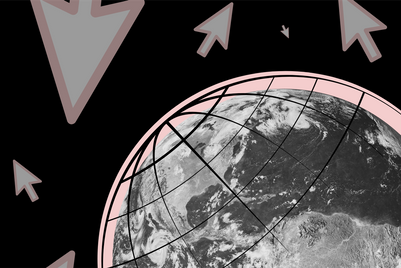.jpg&h=570&w=855&q=100&v=20250320&c=1)
Leadership in PR isn’t just about knowing the best time to drop a press release or crafting the perfect crisis statement. It’s about steering teams through the stormy seas of deadlines, difficult clients, and that one journalist who won’t stop asking that question!
Strategy and decision-making are surely important, but the real magic happens when a leader can tap into the emotions of her/his team and of the target audience to obtain the most productive results. It is about emotional intelligence (EI), and if you are in PR, it is your superpower.
EI is not a nice to have but an essential quality in PR. Now, before you roll your eyes and think this is just another buzzword, here is some statistics.
The data published by Passive Secrets reveals that the teams with empathetic leaders experience a 76% boost in engagement and a 61% leap in creativity. In PR, where relationships rule and reputations are made or broken with a single tweet, harnessing emotions is a strategic imperative.
Keep calm and carry on
Picture this: You are at a press conference. Journalists are firing questions like popcorn in a hot pan.
You are sweating; your client is sweating; the room is sweating. But a PR manager with EI? They are cool as a cucumber—at least on the outside.
You may be anxious inside—which is natural and even helpful in many scenarios—but the key lies in how you can calmly navigate complexities without letting your anxiety run wild externally. Self-awareness and self-regulation are like the dynamic duo of EI—they help you spot your own emotional triggers and keep you from turning into a defensive mess when things heat up.
Managers and leaders who can regulate their emotions not only stay calm themselves but also help their teams stay grounded. In moments of crisis (there is always a crisis, right?), level-headedness translates into better decision-making. When a client is panicking over a negative comment gone viral on X or LinkedIn, a self-regulated leader can stay laser-focused on crafting a solution—not adding to the chaos.
Empathy: Your best friend
Ever met someone who really gets you? That’s what good PR managers always do—but only for clients, stakeholders, and audiences.
Moreover, it is the empathy factor that turns a good PR campaign into a great one. It is the difference between sending out a cookie-cutter press release and an empathetically crafted message that addresses the real hopes and fears of the target audiences. Remember Tony Fernandes’ compassionate approach to managing Air Asia’s plane disappearance crisis in 2014?
Suppose you are launching a healthcare product. A good PR manager will not simply rattle off its benefits, but rather assess the true feelings of the potential patients—whether they are anxious, hopeful, or a bit of both.
They will then craft a campaign that not only talks about the product but also acknowledges the emotional journeys of patients. That is what we call connecting with the audience at a deeper level.
Building teams that want to show up
EI is contagious. Leaders with high EI create work environments where people actually want to be—yes, even on Monday mornings! They foster trust, encourage open communication, and are the antidote to office drama.
The result? Teams that are more creative, productive, and satisfied with their work.
Let’s consider a hypothetical scenario. One of your PR execs is dealing with a particularly challenging client. Instead of barking orders like a drill sergeant, an EI-enabled PR leader takes a different approach. They sit down with the team members, listen to their concerns, and devise a way to help—whether it is about offering an advice, lightening their load, or giving them the resources they need to succeed. The outcome? A more resilient, motivated, and happier team.
It doesn’t stop here. Leaders with EI know the power of recognition.
Whether it is celebrating a successful pitch or acknowledging someone for crushing an impossible deadline, these small moments of appreciation go a long way in building team morale. Plus, who doesn’t like a little pat on the back now and then?
EI is a journey, not a destination
Here is the kicker—EI isn’t something you merely check off your to-do list. It is like a muscle that needs regular exercise.
Want to get better at it? Start by paying attention to your emotional responses and how they affect your decisions. Maybe, keep a journal—yes, a journal—it’s not meant for your teenage years only. Alternatively, try mindfulness practices to help stay centred in the chaos of PR life.
Moreover, don’t be afraid to ask for feedback. Your colleagues, clients, and mentors might have some valuable insights into your blind spots.
And hey, active listening is a skill that will serve you well in every aspect of your job—whether it is in team meetings, client calls, or media interviews. It is not about planning your next witty comeback; it is about really hearing what people are saying and responding thoughtfully.
The future of PR leadership lies in our ability to blend EI with strategic brilliance. Leaders who can read between the lines, anticipate emotional reactions, and craft campaigns that resonate at a human level are the ones who will truly excel. Being a ‘people’s person’ matters. But being a people’s person with a keen sense of EI is where the real magic happens.
 -Rachna Baruah, founder of Madchatter Brand Solutions
-Rachna Baruah, founder of Madchatter Brand Solutions





.jpg&h=334&w=500&q=100&v=20250320&c=1)

.jpg&h=334&w=500&q=100&v=20250320&c=1)









.jpg&h=268&w=401&q=100&v=20250320&c=1)


